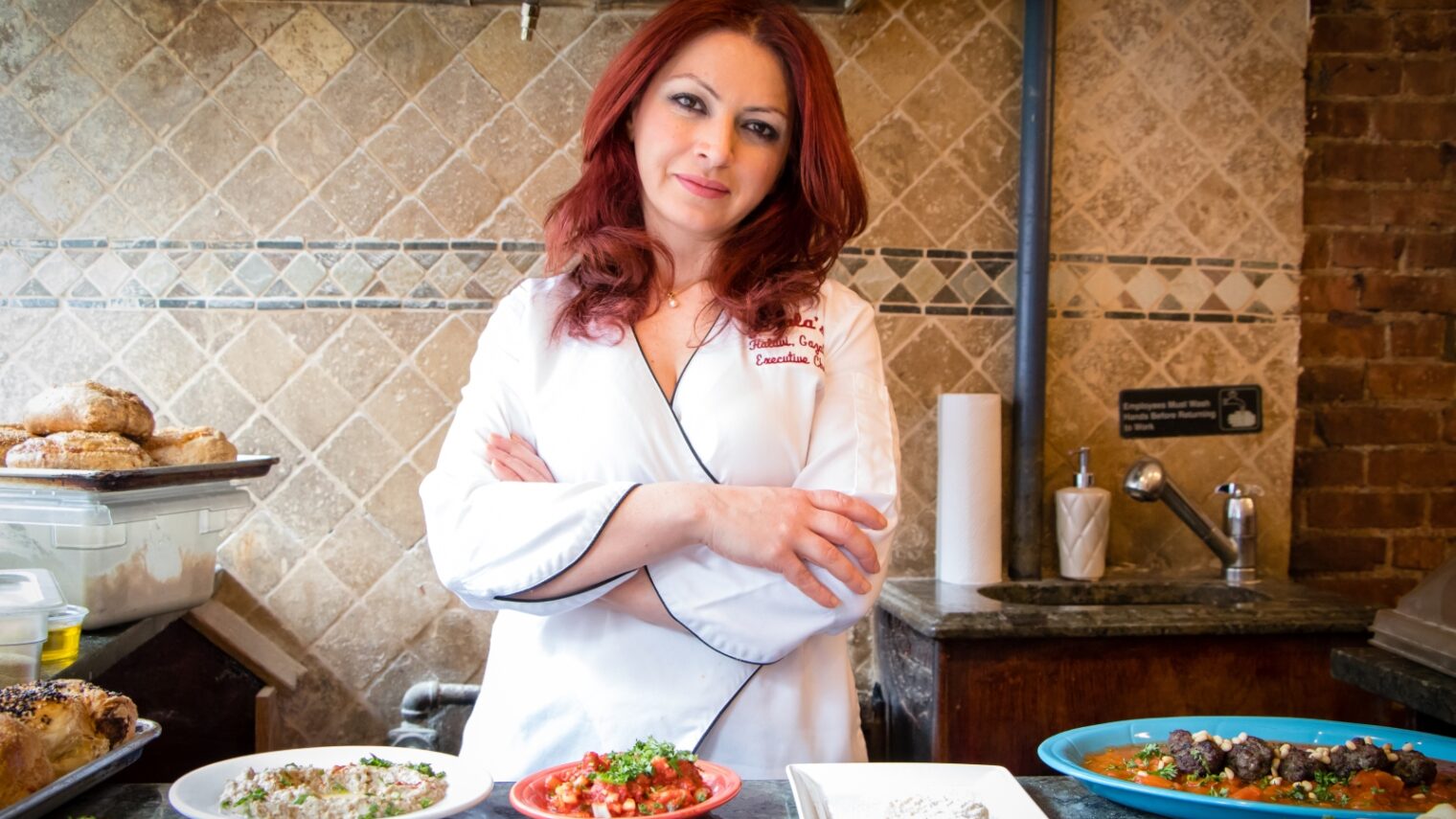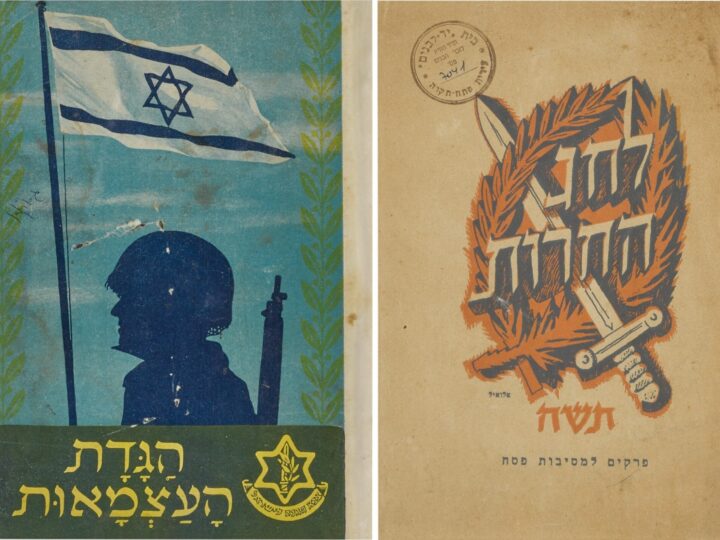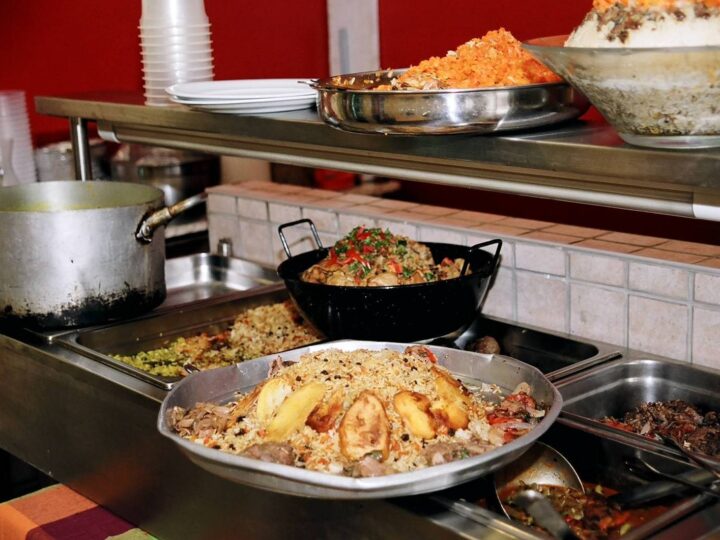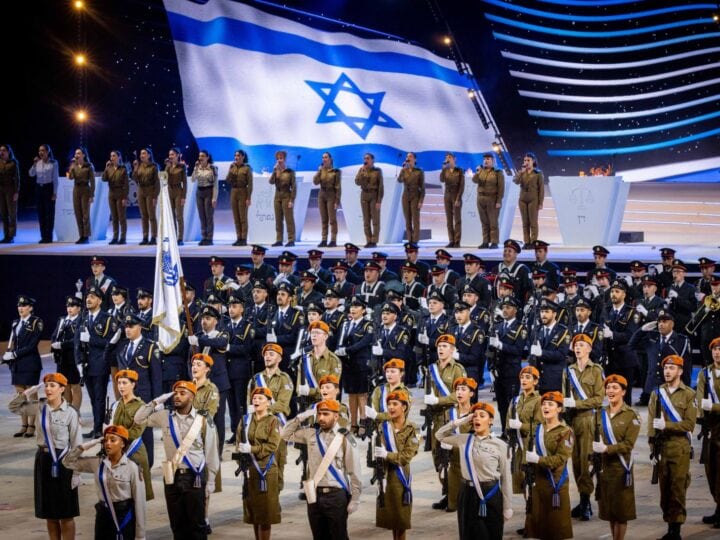Taking New York by storm is no easy matter. And being an immigrant mom from a tiny religious minority certainly doesn’t make the odds any better.
But such trivial details didn’t stand in the way of Gazala Halabi, the owner and chef behind critically acclaimed restaurants that introduced New Yorkers to the wonders of Druze cuisine.
And which of these wonders do New Yorkers love best?
“I would start with the burekas, for sure. I’m very famous for my burekas,” Halabi says. A close second, she adds, is the staple Middle Eastern eggplant salad. “My baba ganoush – the New York Times fell in love with my baba ganoush.”

That’s quite something, especially considering Halabi didn’t know what the New York Times was when it first reviewed her restaurant, Gazala’s.
A mother of two from the Druze Israeli village of Daliat el-Carmel, Halabi moved to New York City with her now-ex in 2001. She opened her first restaurant, a tiny hole-in-the-wall kind of place, in 2007.
“I used to cater from home before,” she explains. “I had my kids very young so I didn’t have many choices. I sold cookies and catered from home until I decided to open a restaurant.
“I started the business with no knowledge, no nothing. I never worked in a restaurant before, in a kitchen before, but I learned,” she adds. “I didn’t know how difficult it is. It was going from a small kitchen at home to a commercial kitchen, which was very difficult.”

The Daily News review appeared three months after opening, and four months later the New York Times review. “So, a success at the very, very beginning,” she notes. “It’s crazy, especially when it’s the beginning and you don’t know what the New York Times is.”
The reviews’ effect, Halabi says, was overwhelming.
“People from all over – from Florida, from Washington DC, even California – they kept the newspaper and they just came. It wasn’t only local people or New York people; it was all over the States. It was amazing.”

Twelve years and three restaurants later, Halabi is still serving up her heritage. The Druze are a Middle Eastern, Arabic-speaking religious minority. Some 150,000 members of the community live in Israel, while others reside mostly in Syria and Lebanon. In New York, Halabi points out, the situation is quite different.
“Israeli Druze – it’s very, very rare to find in New York. Lebanese, Syrian Druze, yes, in the States, but in New York there’s almost nobody,” she says. Accordingly, most of her stateside friends are either Israeli or American Jews.
“I feel somehow that I’m home. Maybe this is what’s good about being a Druze Israeli. That there’s a large Jewish community here in New York, so I didn’t feel alone.”
Every Druze mom is a chef
As anyone who’s traveled to Israel knows, Druze cuisine is some of the best the country has to offer.
“Every Druze mom is a chef somehow. So I learned it of course from my mom, from my grandma, the whole family,” she explains.
“I think it’s almost the same as the Israeli kitchen,” she adds. “The Druze maybe spend more time, put more in the food.”
“I will say this – when they want to mention my restaurant they don’t just say ‘Druze,’ they say ‘Druze Israeli.'”

This does not mean, however, that the food Halabi offers is exactly the same as what you’d find in Israel. It’s undergone some slight adaptations to suit American tastes.
“If I taste the food – I add salt. So I try to minimize salt and spices and sour, because it’s not an American taste. They don’t like spices like Israelis. We love it, but here we cannot do it 100 percent my flavor so I change it a little bit,” she notes. “There are things that I try to keep my way, but just to be careful with the flavor.”

As for the other millions of cuisines on offer throughout the city, Halabi admits she doesn’t have a particular favorite, and for a pretty surprising reason – it turns out she’s a bit of a fussy eater. “I’m in the food business but I’m very picky,” she chuckles. “But definitely when I dine out I don’t dine on Middle Eastern food.”
Asked what she’d like Americans to know about her community, Halabi is full of praise.
“The Druze are very strict, very original. We try to keep things – people sometimes would think it’s very old-fashioned – but it’s not about this, it’s about keeping it original,” she says. “Things that they do, they do it from all their heart. It doesn’t matter if it’s the army, food… they do it the right way.”

Halabi is quite content staying in New York for the moment, but she is very clear on her identity.
“I grew up in Israel; I’m Israeli all the way. I didn’t feel that anything changed me here. I love my country and love being a Druze Israeli.”
Although her kids are naturally very American – “At her age, of course, I had more knowledge in cooking,” Halabi says of her daughter –she makes sure they stay familiar with their Druze culture.
In any case, New York is not forever.” I don’t see myself an old lady in New York,” she jokes.

















